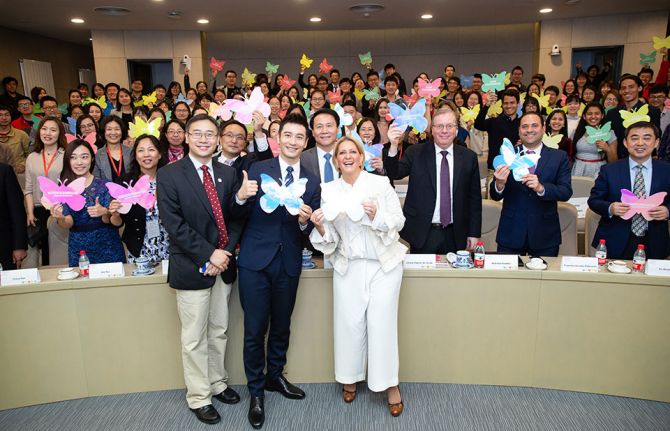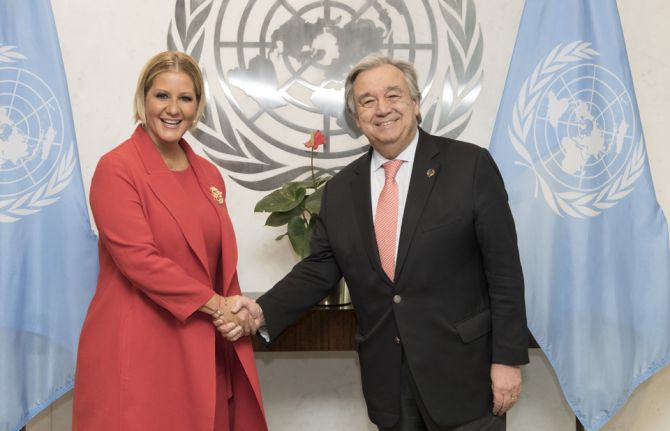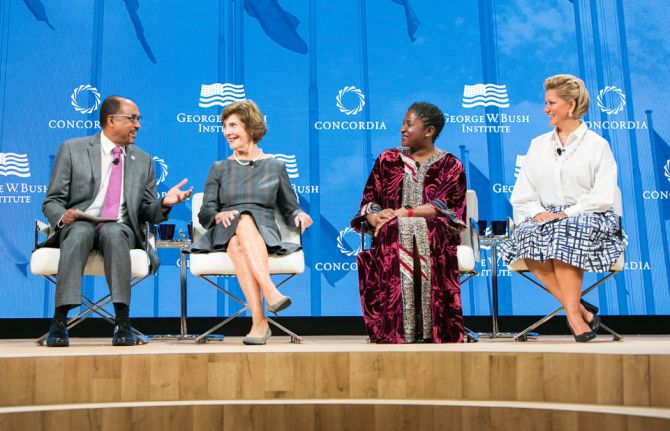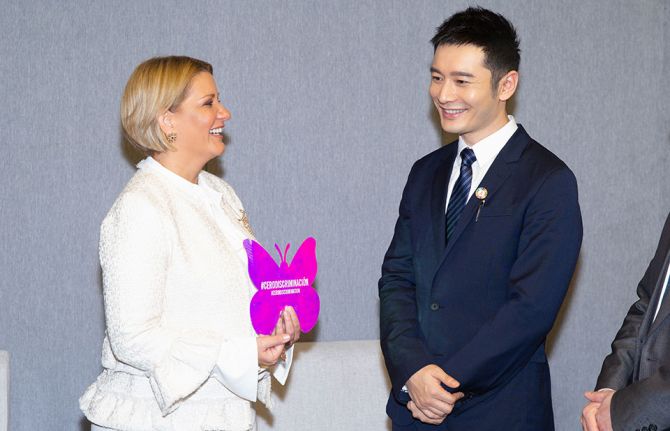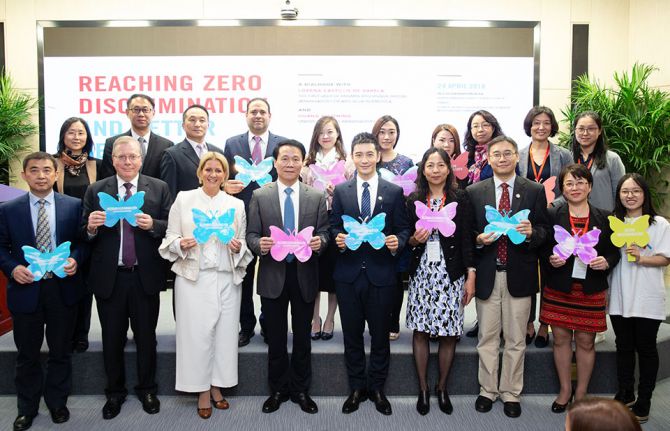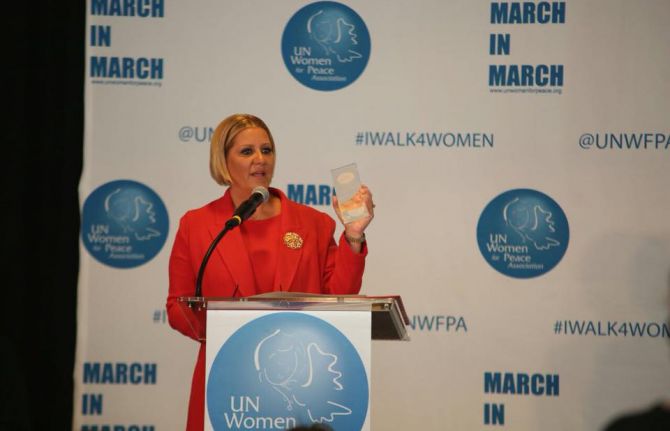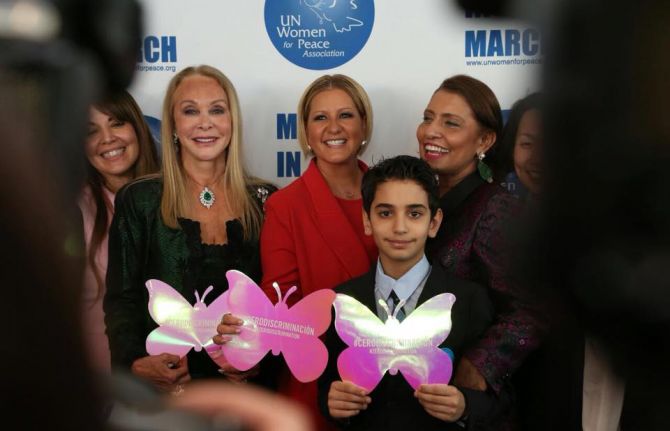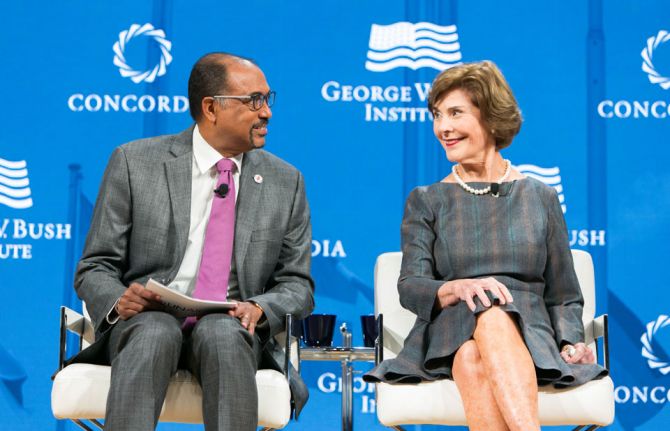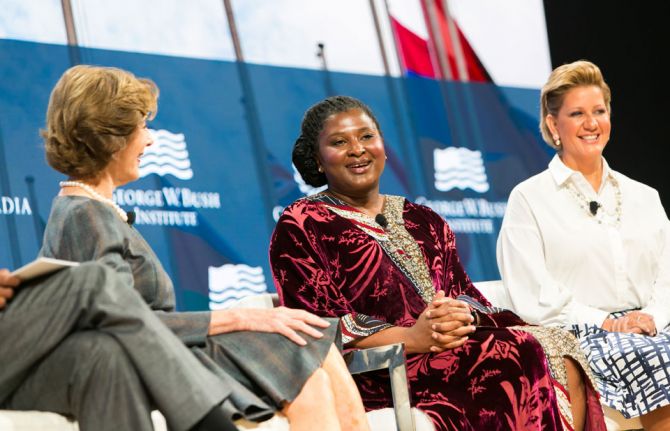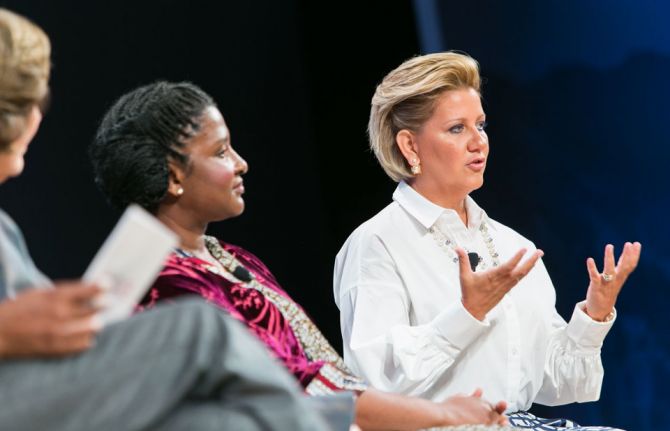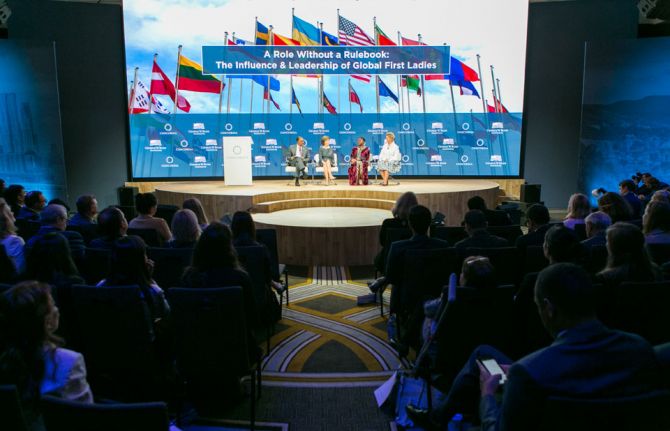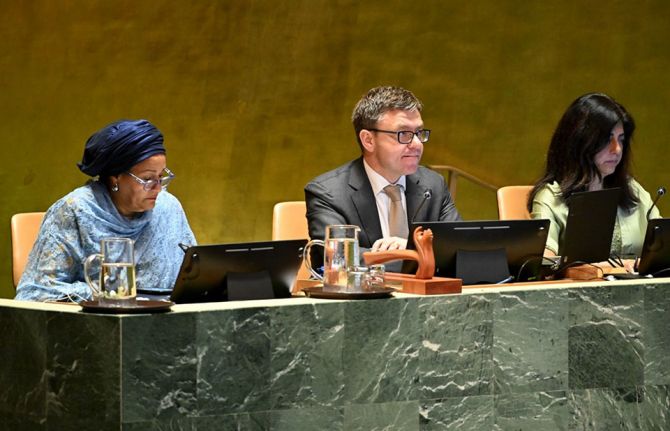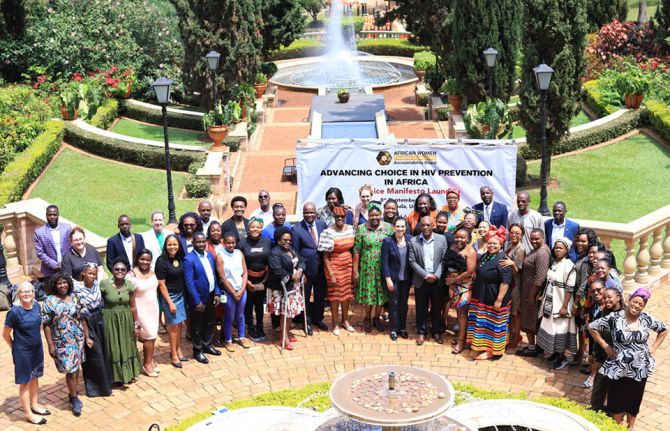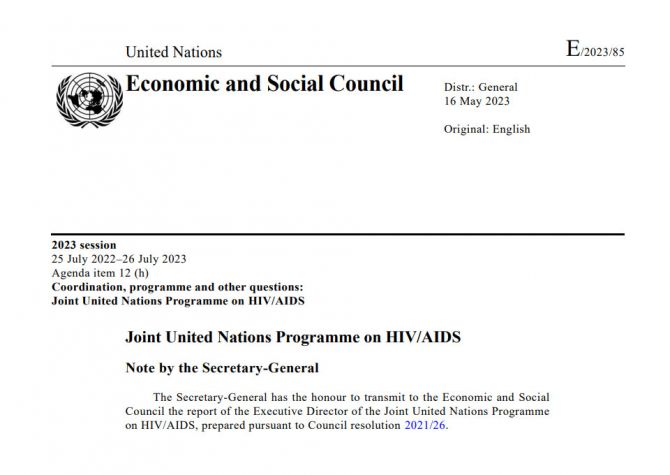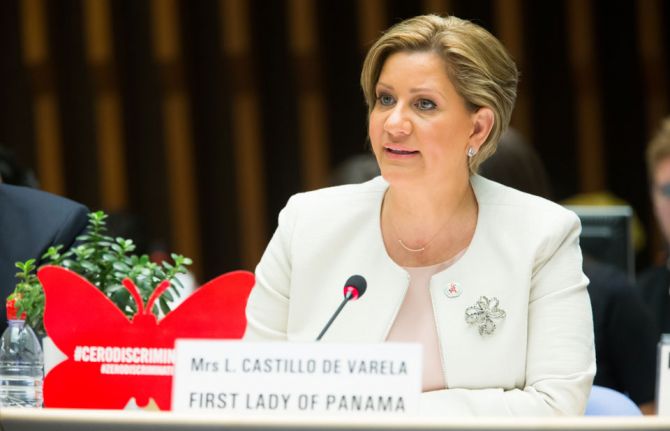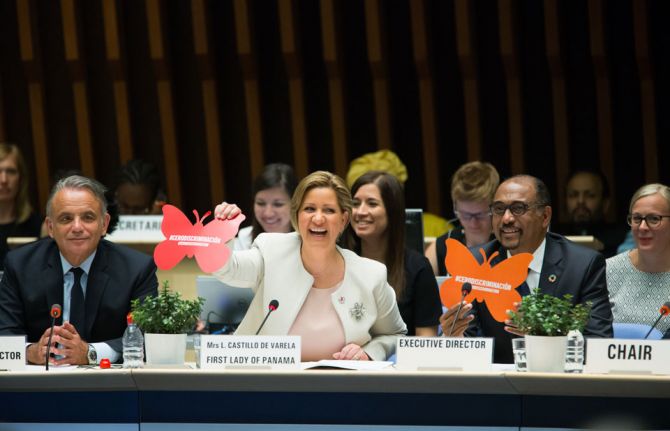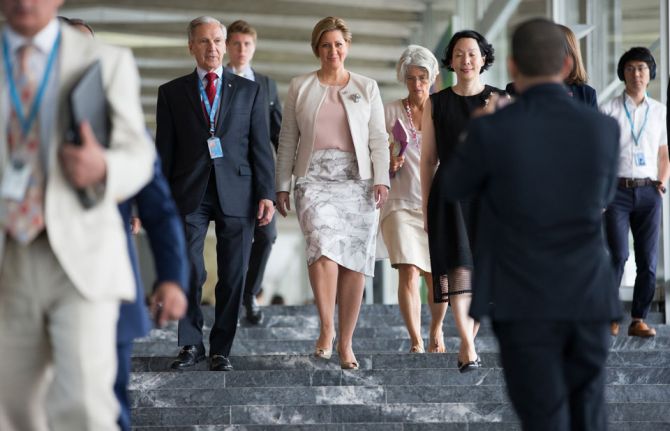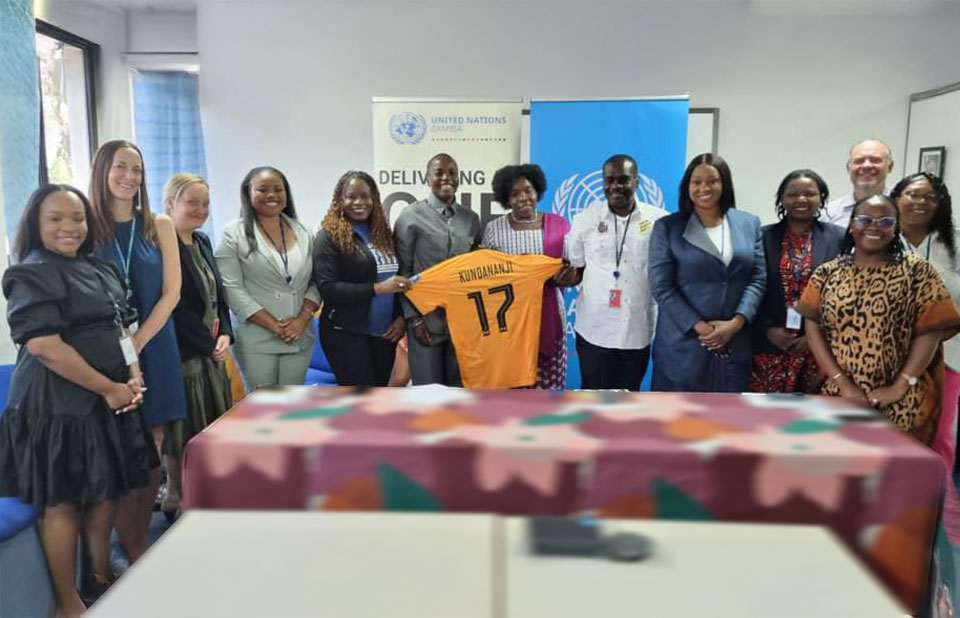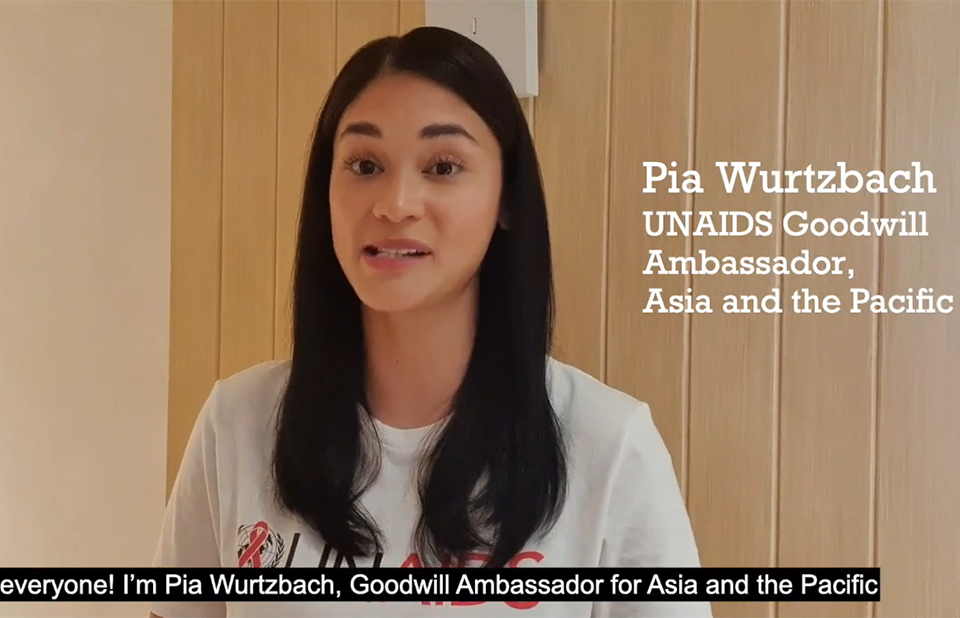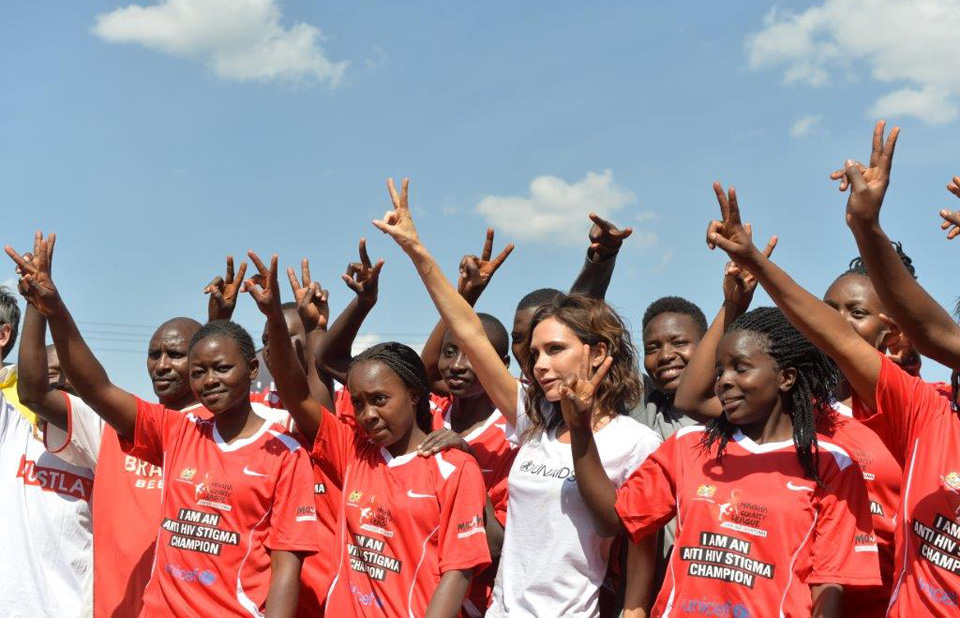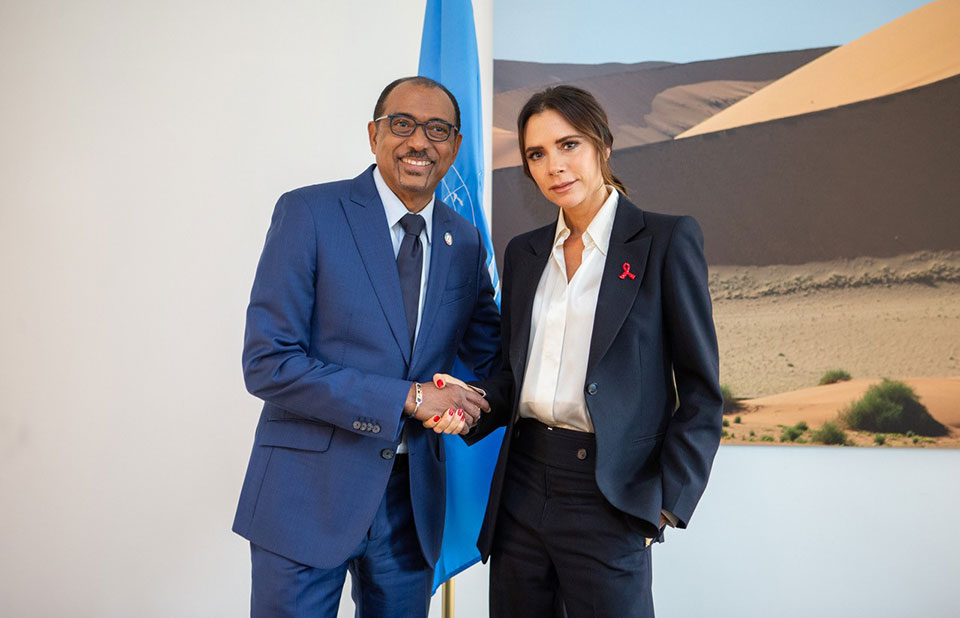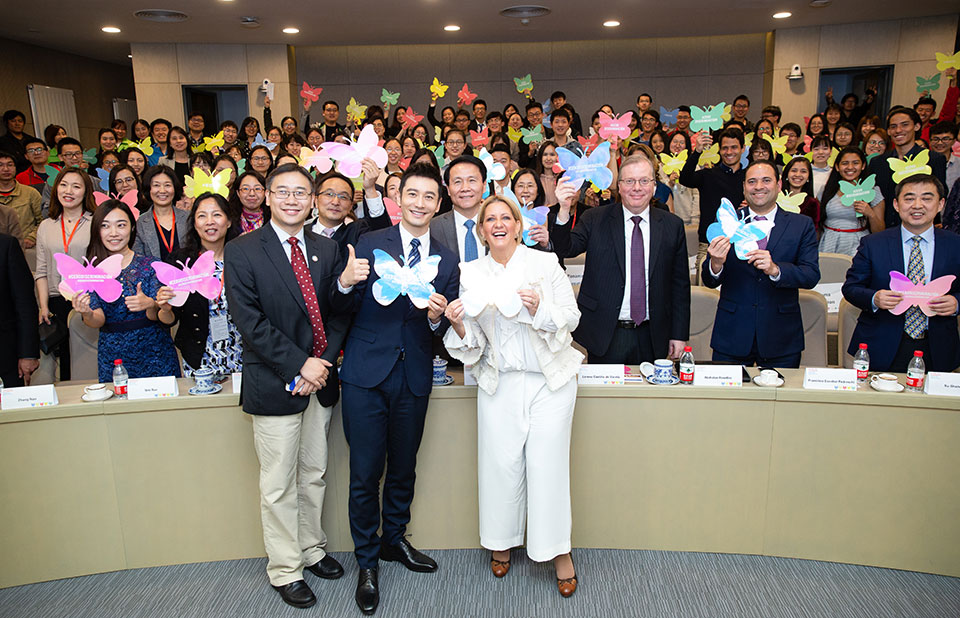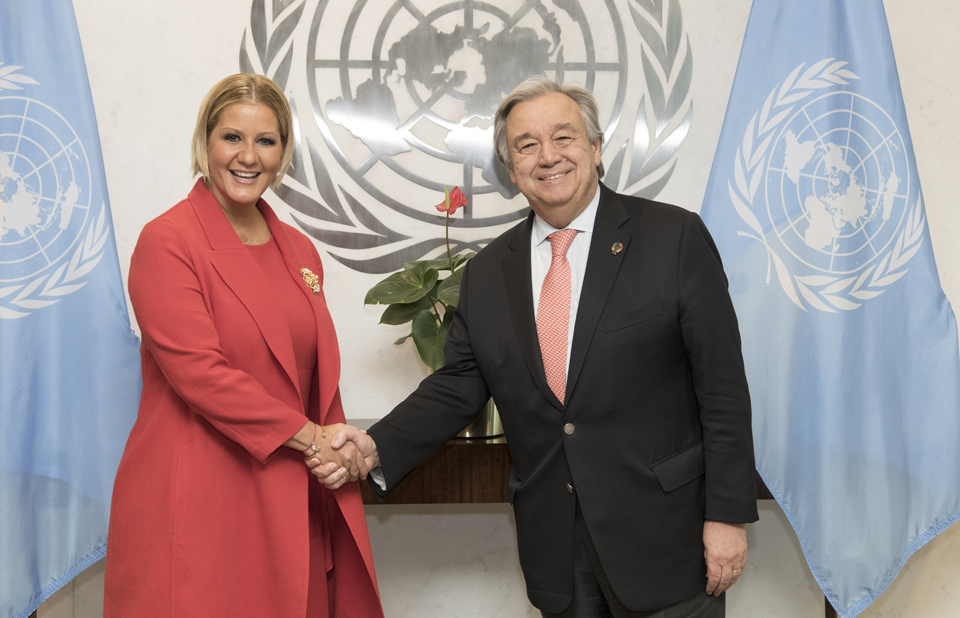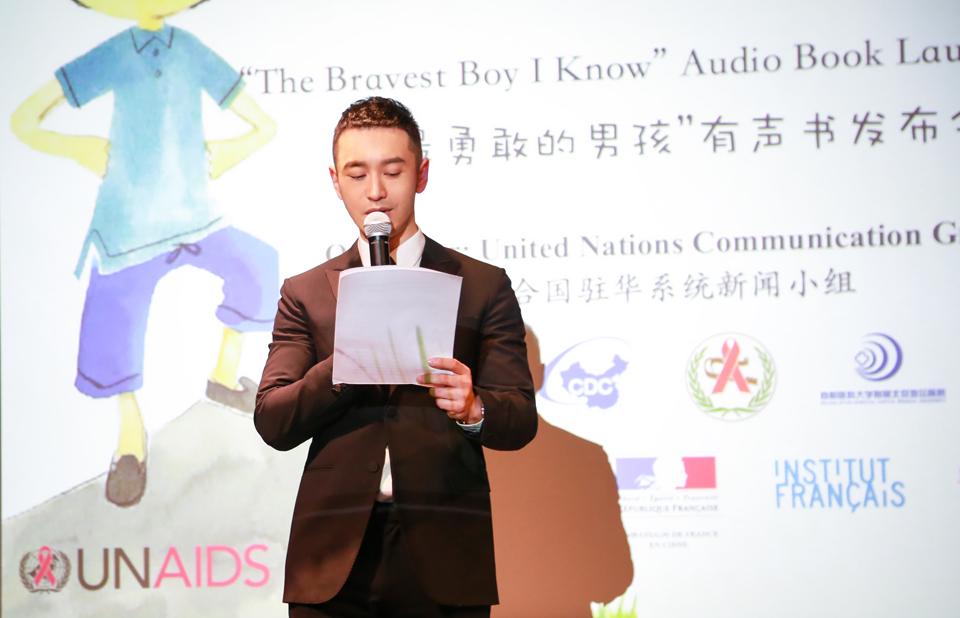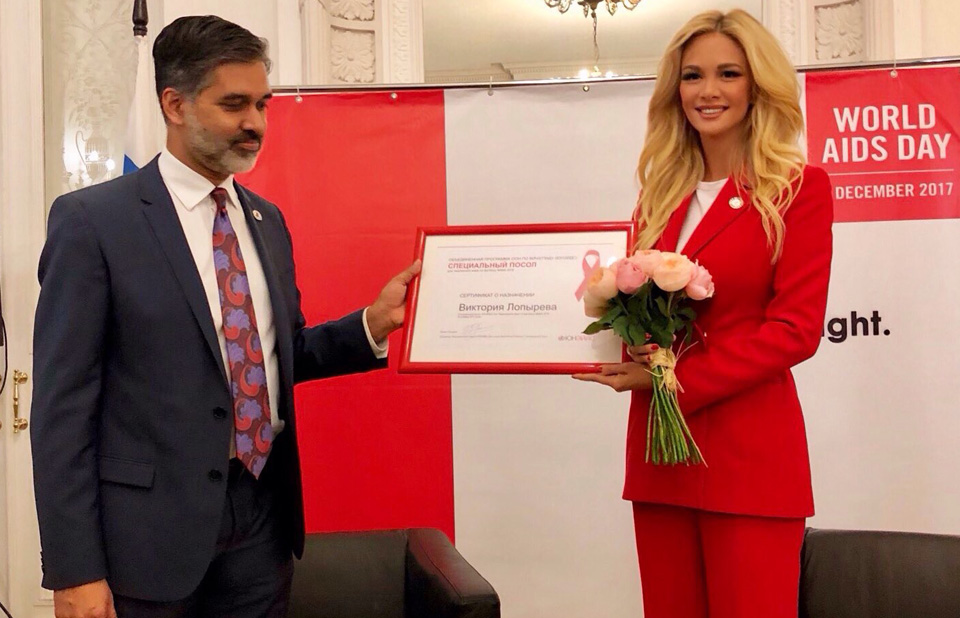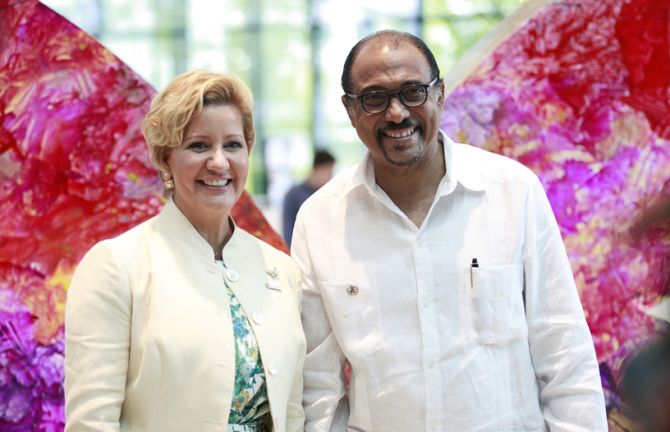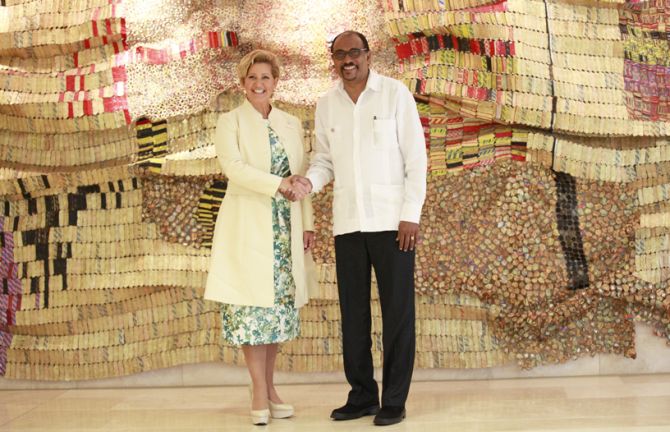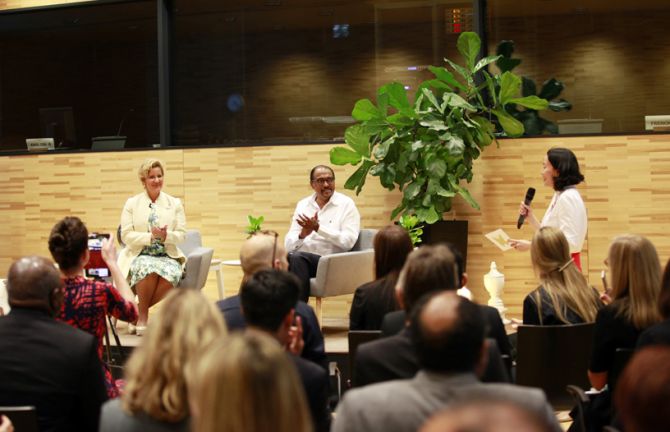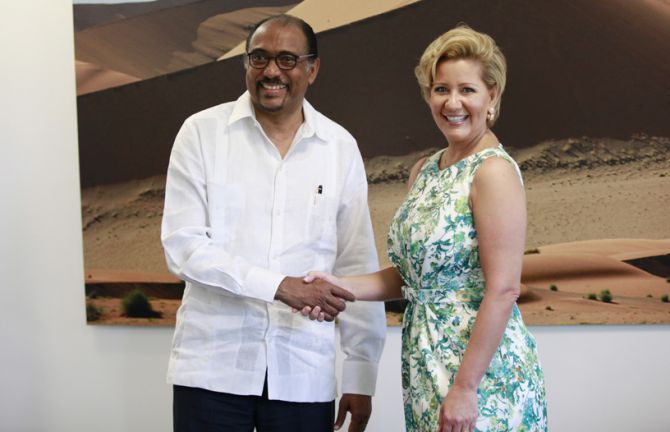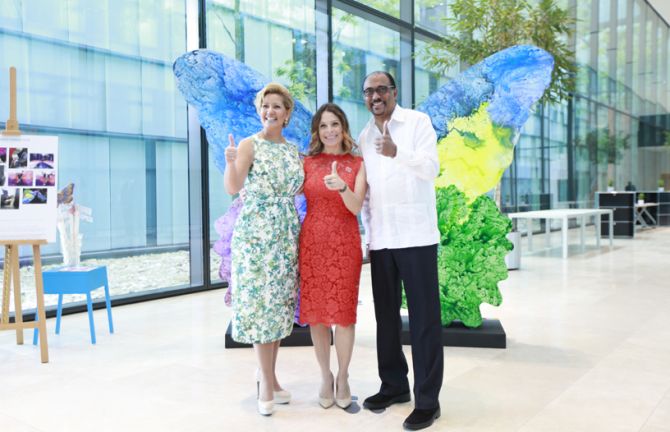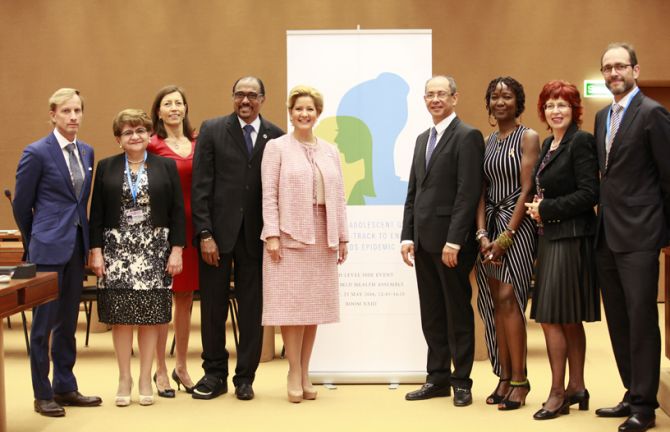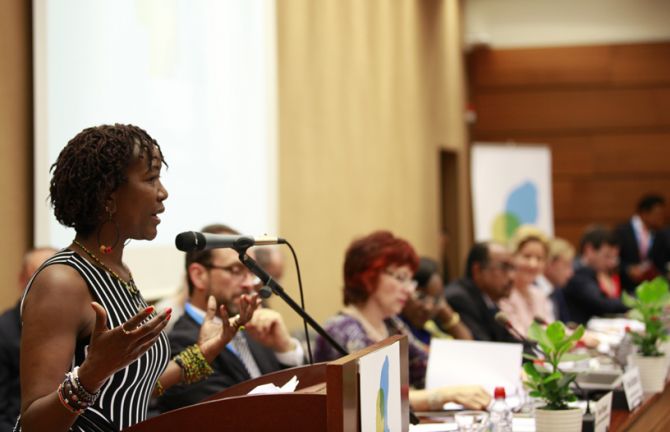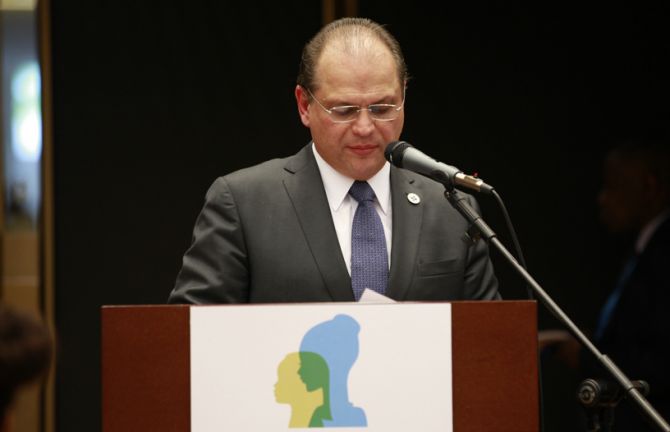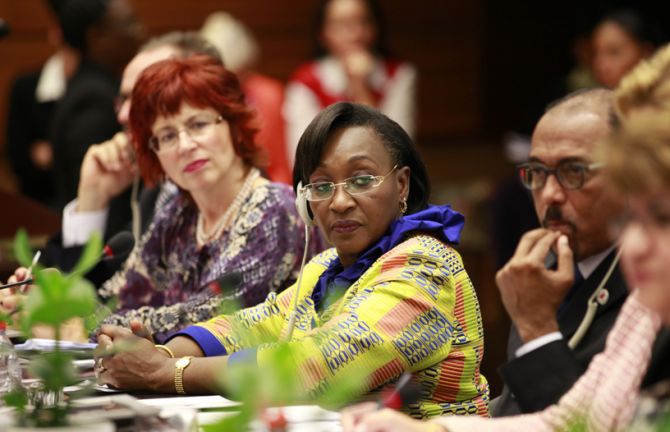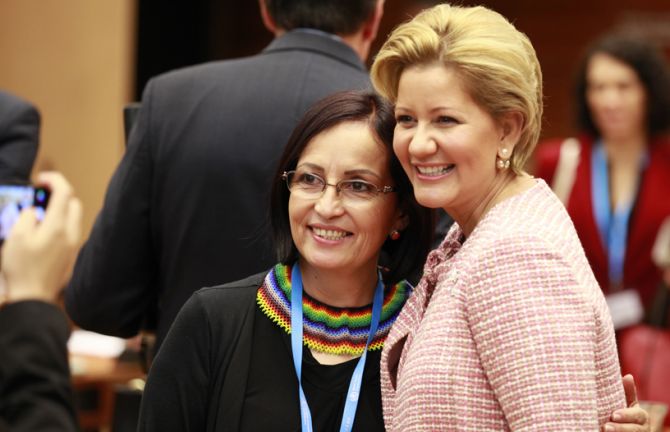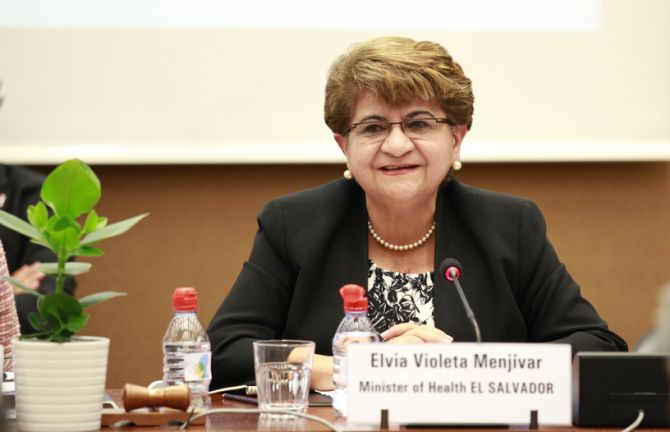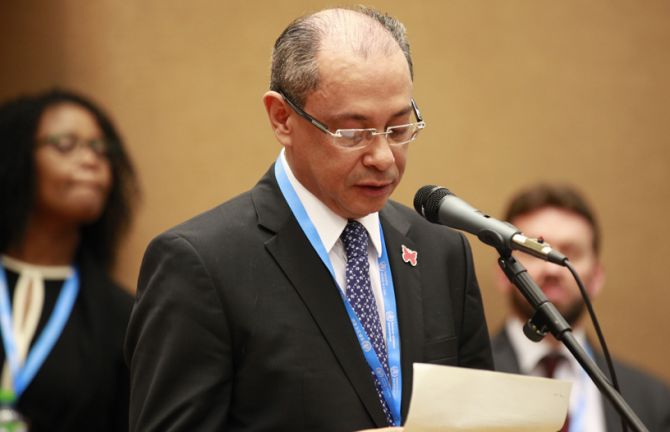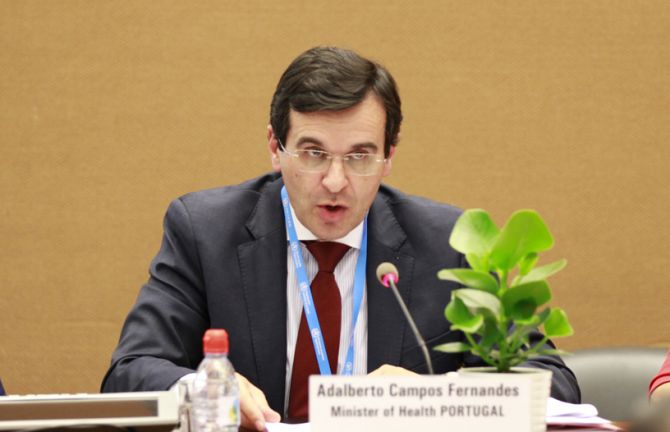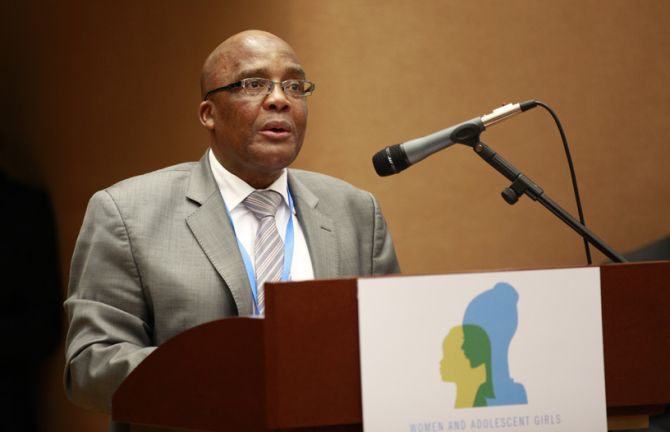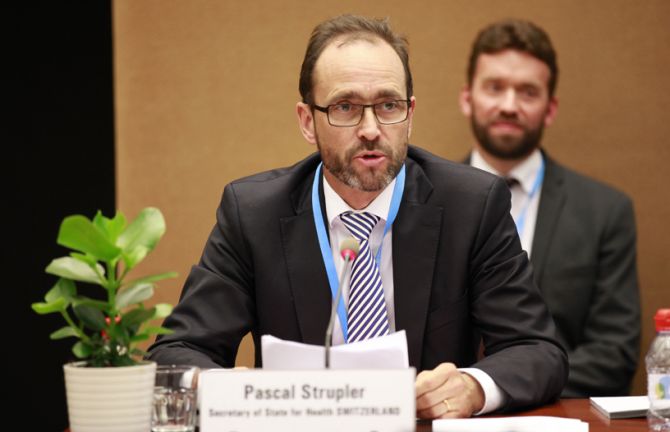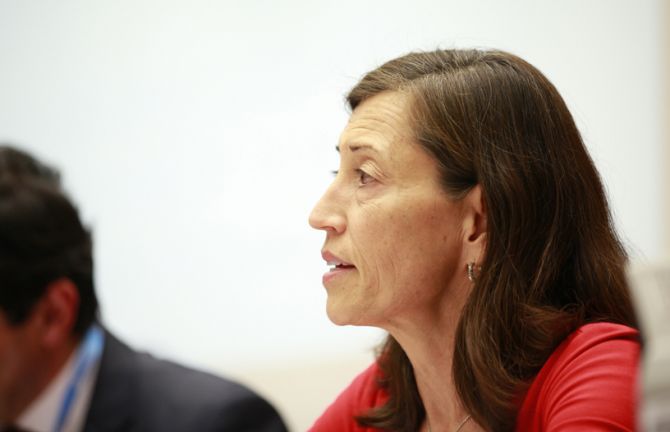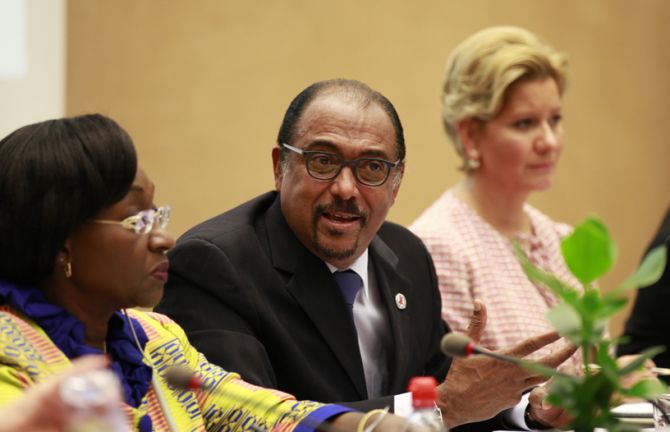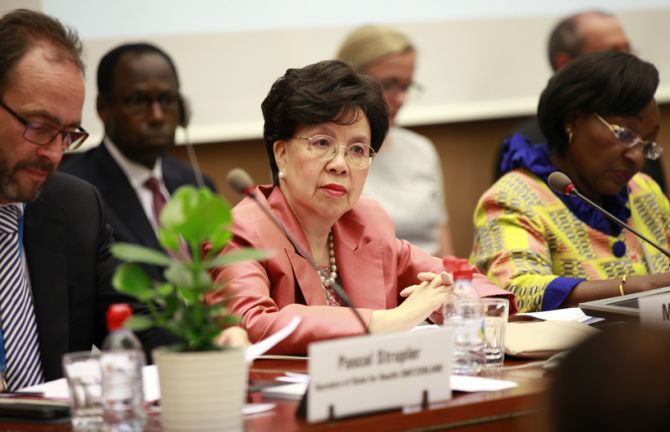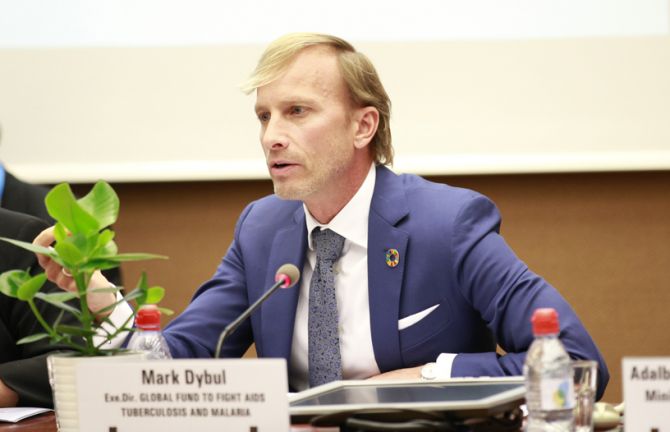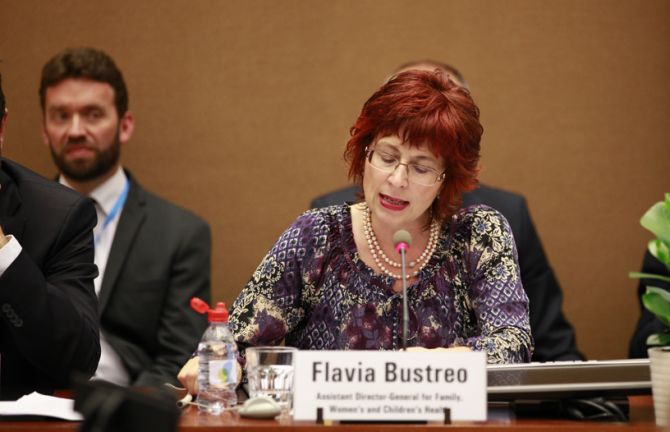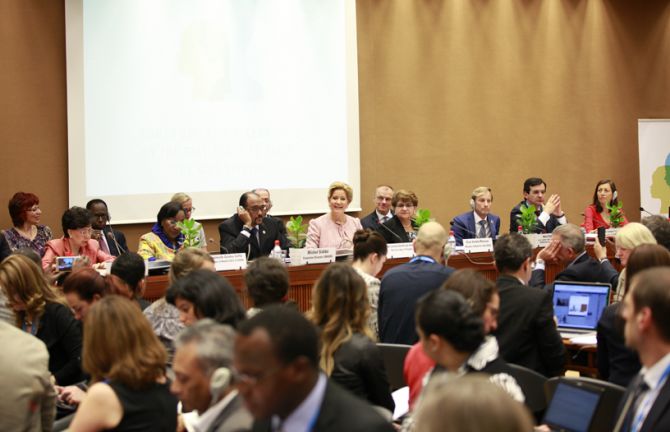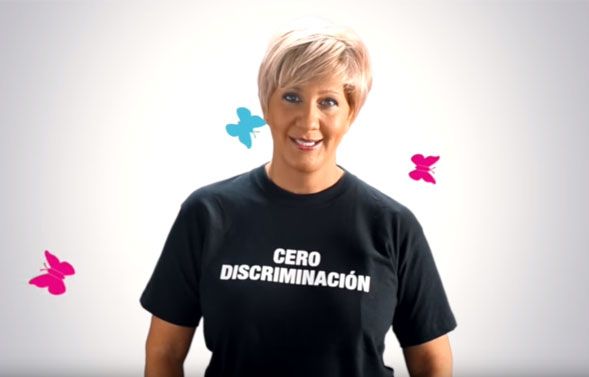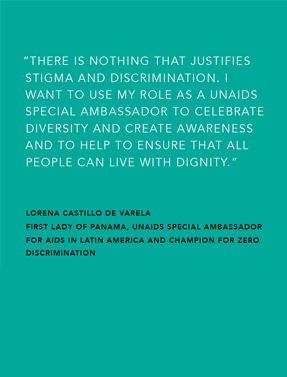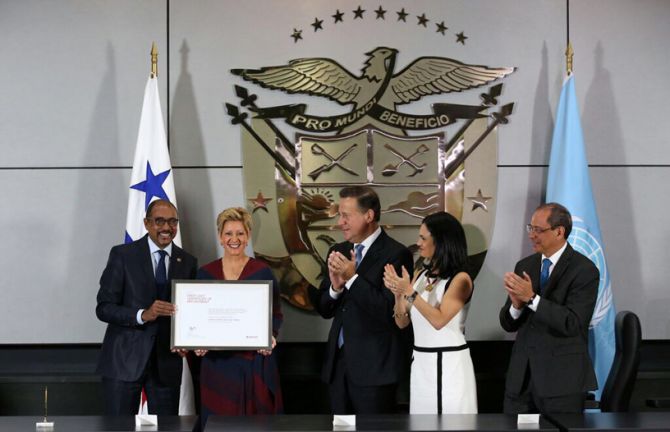The First Lady of Panama, Lorena Castillo de Varela, said that accelerating the AIDS response and em...
The First Lady of Panama, Lorena Castillo de Varela, said that accelerating the AIDS response and empowering women and girls is key to ending the AIDS epidemic
GENEVA, 23 May 2016—At a high-level side event held during the 69th session of the World Health Assembly, taking place in Geneva, Switzerland, delegates have urged countries to end gender inequity in the response to HIV by putting women and adolescent girls on the Fast-Track to ending the AIDS epidemic. Lorena Castillo de Varela, First Lady of Panama and UNAIDS Special Ambassador for AIDS in Latin America, hosted the event. Ms Castillo de Varela stressed the importance of women assuming leadership roles to ensure the development of programmes and policies fitting to their needs.
“Limited access to health care and education, coupled with systems and policies that do not address the needs of young people, are obstacles that block adolescent girls and young women from being able to protect themselves against HIV, particularly as they transition into adulthood,” said Ms Castillo de Varela. “To reduce HIV infections and AIDS-related deaths, we must advance gender equality, women’s empowerment and autonomy to ensure that girls and young women make independent decisions about their own health and are able to live free from all forms of violence.”
The high-level side event focused on three topics, the elimination of new HIV infections among children, HIV prevention in adolescent girls and young women and access to HIV treatment for all.
The engagement and empowerment of women as leaders, policy makers, implementers and peer supporters combined with increased access to effective HIV treatment and prevention has proved essential in the success of global efforts to eliminate new HIV infections among children, which have decreased by more than half, from 520 000 a year in 2000 to 220 000 in 2014. This comprehensive and inclusive approach now has to be widened to include all people living with HIV, including young women and girls.
“We need a combined, holistic approach and interventions that support adolescent girls and women,” said HIV activist of the Salamander Trust, Angelina Namiba. “It is crucial that women living with HIV are meaningfully involved at all stages of these interventions right from design to delivery.”
Globally, AIDS remains the leading cause of death among women of reproductive age. In 2014, there were around 220 000 new HIV infections worldwide among adolescents (aged 15 to 19 years), with adolescent girls accounting for 62% of new HIV infections among this age group. In 2014, AIDS was the leading cause of death in adolescents in sub-Saharan Africa.
Gender-based violence, gender inequity, harmful gender norms, stigma and discrimination often prevent women and girls from knowing their HIV status and accessing appropriate HIV prevention and treatment services. It is estimated that of 670 000 adolescent girls aged 15 to 19 living with HIV, only one in five knows she is HIV-positive.
The UNAIDS Fast-Track approach focuses on ensuring that at least 90% of adolescents and young women and men (as well as other groups at higher risk of HIV infection) have access to combination HIV prevention and sexual and reproductive health and rights services and that they are empowered with the skills, knowledge and capability to protect themselves from HIV by 2020.
In addition to scaling up HIV prevention, the roll-out of access to HIV treatment is critical. The World Health Organization’s global health sector strategy on HIV, 2016–2021, being discussed at this week’s World Health Assembly reiterates UNAIDS’ 90–90–90 treatment target. This will require that 90% of people living with HIV know their HIV status, 90% of people who know their HIV-positive status are accessing antiretroviral treatment and 90% of people on treatment have suppressed viral loads. To achieve this, innovative models of service delivery will be critical to ensuring that adolescents and young people are diagnosed early, rapidly linked to treatment services, helped to adhere to treatment and retained in care to make sure they stay healthy. These services must be accessible, affordable and sensitive to the needs of women and girls. Other Fast-Track targets include achieving fewer than 500 000 new HIV infections a year by 2020 and reaching zero discrimination.
Switzerland and Zambia, who were among the sponsors of the event in Geneva, are co-facilitators of the United Nations General Assembly High-Level Meeting on Ending AIDS. As co-facilitators they will take forward the summary outcomes of this World Health Assembly side event to help inform discussions at the High-Level Meeting, which will take place in New York, United States of America, from 8 to 10 June 2016.
Quotes
“Limited access to health care and education, coupled with systems and policies that do not address the needs of young people, are obstacles that block adolescent girls and young women from being able to protect themselves against HIV, particularly as they transition into adulthood. To reduce HIV infections and AIDS-related deaths, we must advance gender equality, women’s empowerment and autonomy to ensure that girls and young women make independent decisions about their own health and are able to live free from all forms of violence.”
Lorena Castillo de Varela, First Lady of Panama
“We need a combined, holistic approach and interventions that support women beyond pregnancy. It is crucial that women living with HIV are meaningfully involved at all stages of these interventions right from design to delivery.”
Angelina Namiba, Salamander Trust
“Besides attending health services to seek care for themselves, many Brazilian women also seek care for their children or other family members. There is in this regard an interconnection between taking care of oneself and caring for others, with women playing a role of caregivers to their family and community.”
Ricardo Barros, Minister of Health of Brazil
“As long as men are not involved, as long as men refuse to not join women in the process, we will not reach our goals of zero new HIV infections. We are determined to end HIV/AIDS and this is why in our last annual meeting on AIDS, the President himself decided to increase funding for the HIV response in a very substantial way.”
Raymonde Goudou Coffie, Minister of Health, Côte d'Ivoire
“This is a future that we must create, not a reality that we must await.”
Margarita Guevara, Minister of Health, Ecuador
“We have reduced the number of HIV cases, we have reduced mortality, we have increased free coverage of antiretroviral therapy, and we have reduced mother-to-child transmission of HIV. All of this we have done in a strategy to combine public resources with community responses.”
Elvia Violeta Menjívar, Minister of Health, El Salvador
“From the outset Panama has conducted epidemiological supervision of HIV. With the leadership of the First Lady we have revitalized our fight against HIV.”
Francisco Javier Terrientes, Minister of Health, Panama
“What must change is guaranteeing access to all forms of prevention, diagnosis, care and treatment for all, especially regarding young women and the most vulnerable populations.”
Adalberto Campos Fernandes, Minister of Health, Portugal
“Before we implemented the prevention of mother-to-child transmission programme we had 70 000 infections in infants – this has reduced to less than 7 000. Despite this decrease the work is still incomplete – we must get as close to zero infections as possible and we are working hard to achieve this.”
Aaron Motsoaledi, Minister of Health, South Africa
“We express our hope that 2016 will mark an historic change in the response to AIDS: this year must reflect a major turning point in the response towards the end of the epidemic.”
Pascal Strupler, Secretary of State for Health, Switzerland
“I’m sure you all agree that adolescence is a precarious period in a girl’s life, when significant physical, emotional and social changes shape her future. But adolescence is also an ideal point to leverage development and diplomacy efforts, to break the cycles of poverty and violence, to keep girls in school, to invest in their future. I am confident we can put women and girls on the Fast Track to ending the AIDS epidemic in the very near future.”
Ambassador Pamela Hamamoto, United States of America
“It is an injustice that women and girls are prevented from reaching information and services that could keep them free from HIV and give them access to treatment. If we are to end the AIDS epidemic by 2030 as part of the Sustainable Development Goals, the world must adopt a people-centred approach that enshrines the right of women and girls to make informed decisions about their health and well-being, including their sexual health and rights.”
Michel Sidibé, UNAIDS Executive Director
"This is an extremely important side event. It’s all about ending the AIDS epidemic and working on a very important group – adolescents. If we neglect this age group, we will not be able to achieve our objective of ending the AIDS epidemic by 2030. I congratulate you for working not only on this issue, but also on the elimination of mother to child transmission of HIV. This will be decisive to ending AIDS."
Margaret Chan, Director General of the World Health Organization
“HIV and TB are somewhat unique diseases. Not just infectious diseases but diseases of society. And we need to understand that. We have to use not only data but also some good common sense. Medical interventions are not enough. They will not address the fundamental aspects of inequality. Data tell us that both health and education together are key. Keeping girls in school is vital. Adolescent girls and young women are not just an issue we need to address but an investment that we absolutely must make."
Mark Dybul, Executive Director of the Global Fund to Fight AIDS, Tuberculosis and Malaria
UNAIDS
The Joint United Nations Programme on HIV/AIDS (UNAIDS) leads and inspires the world to achieve its shared vision of zero new HIV infections, zero discrimination and zero AIDS-related deaths. UNAIDS unites the efforts of 11 UN organizations—UNHCR, UNICEF, WFP, UNDP, UNFPA, UNODC, UN Women, ILO, UNESCO, WHO and the World Bank—and works closely with global and national partners towards ending the AIDS epidemic by 2030 as part of the Sustainable Development Goals. Learn more at unaids.org and connect with us on Facebook, Twitter, Instagram and YouTube.
